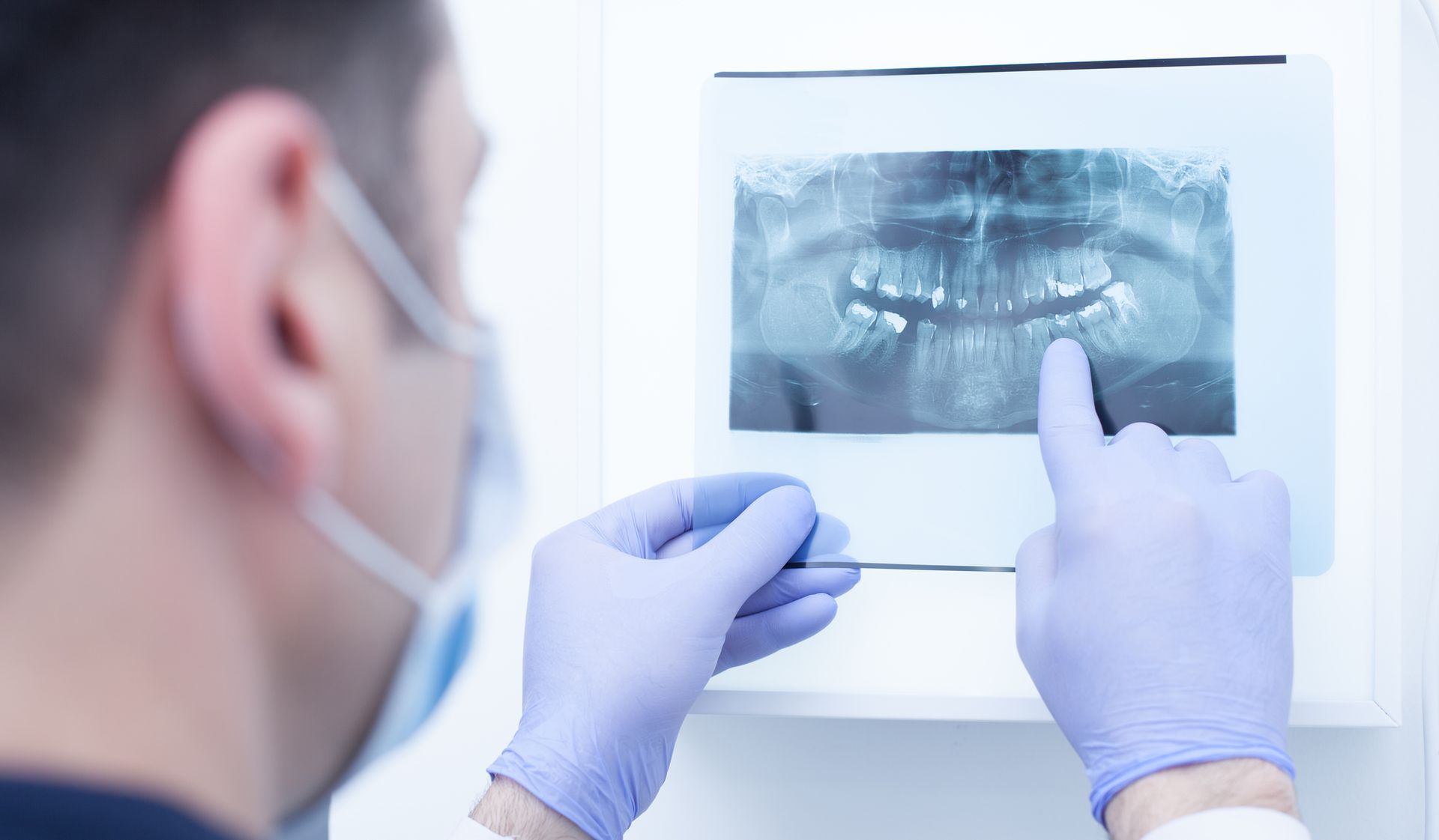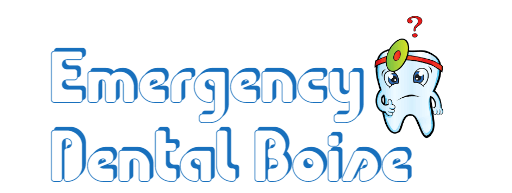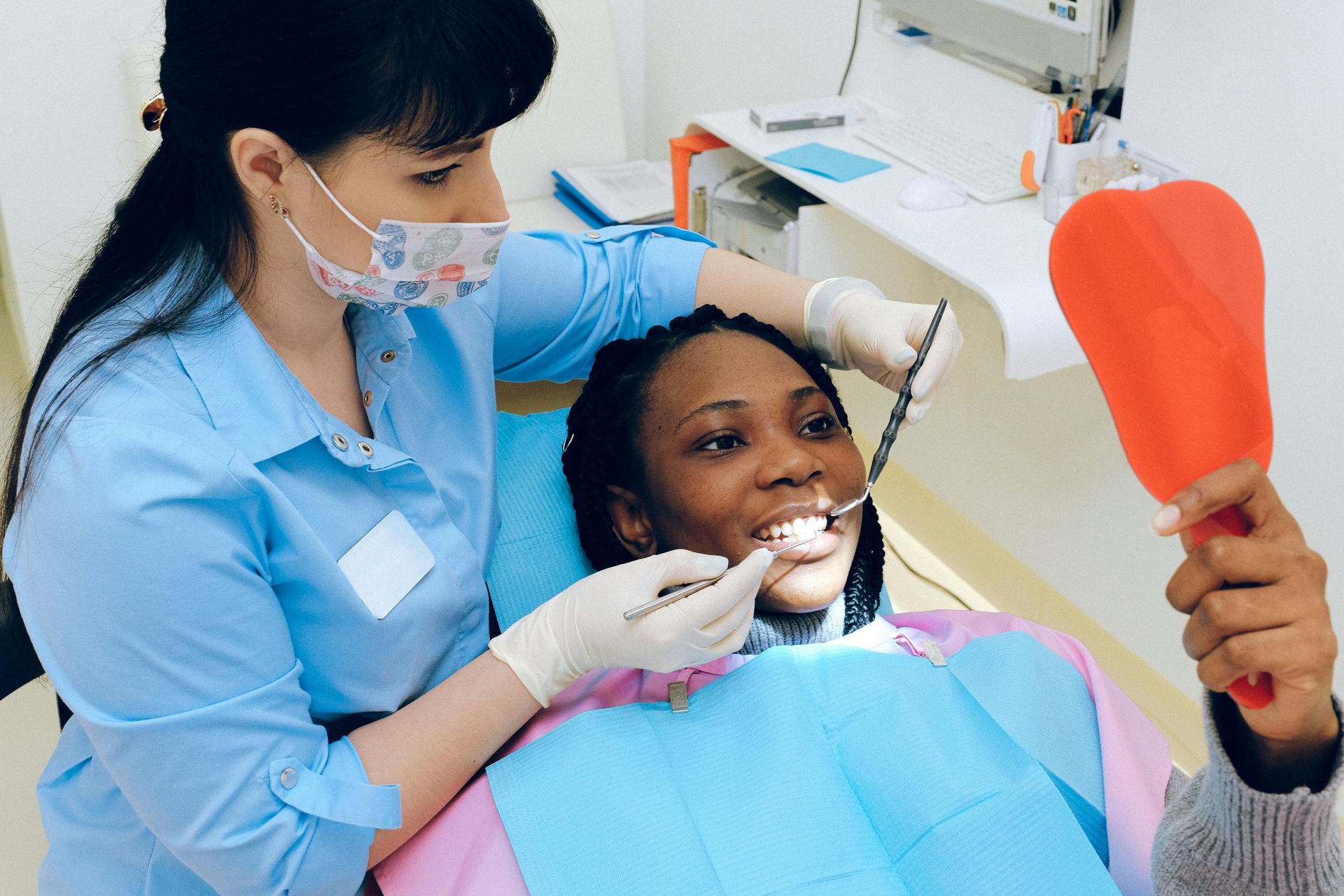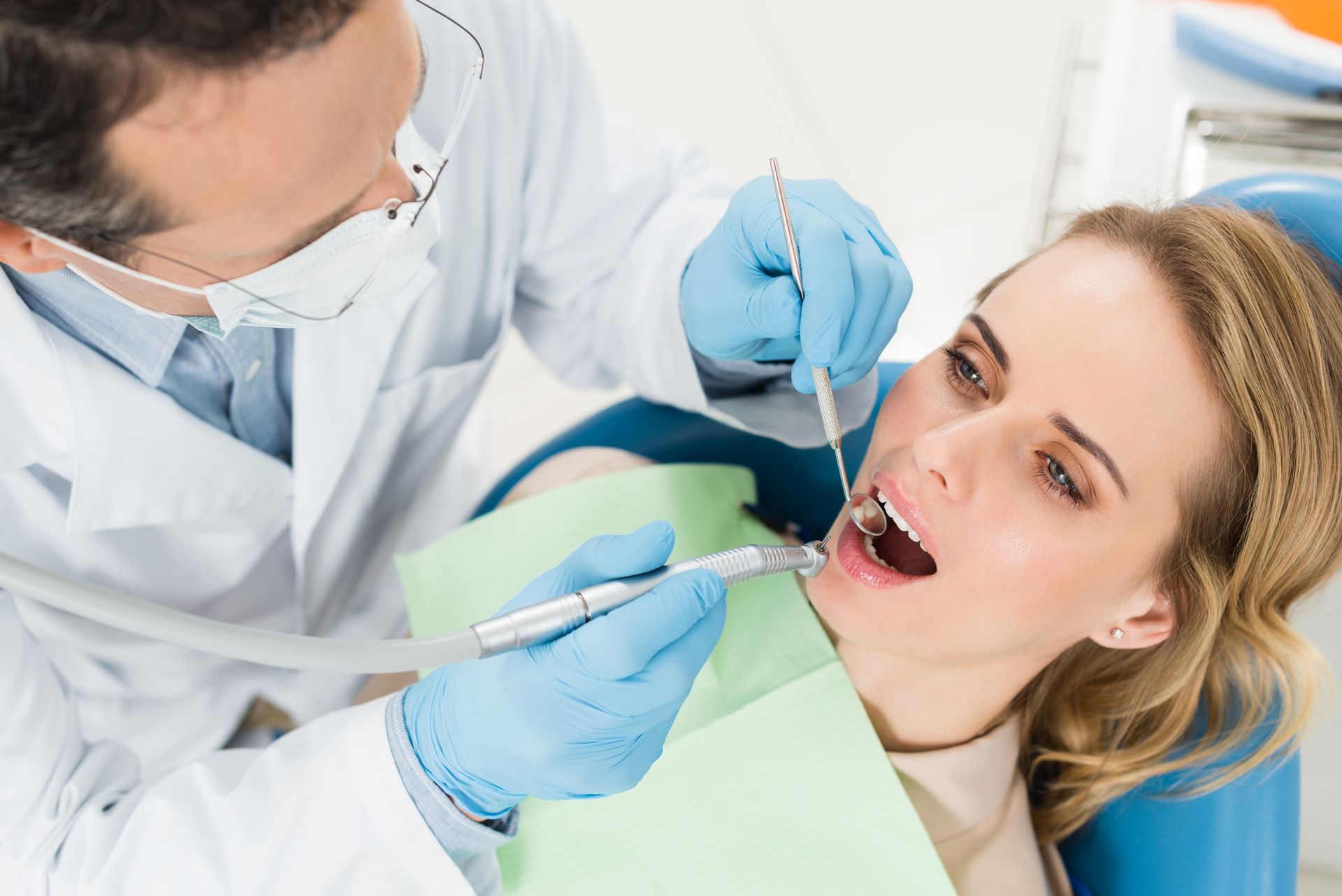Determining The Three Primary Types Of Teeth

Emergency Dentist Of Boise Discuss The Role Of Each Type Of Teeth In Maintaining Your Oral Health
The human mouth is an intricate structure that is essential for eating and speaking. It is comprised of multiple components that are integral to its functioning. The anatomy of the mouth includes the teeth, tongue, gums, and other oral structures that work together to perform a variety of tasks.
Teeth are one of the most noticeable parts of a person's mouth and are important for both how they look and how they work. They come in different shapes, sizes, and types, which vary depending on their location within the dentition.
The mouth has several sets of teeth, each of which has a specific job to do so that we can eat and talk properly. These teeth are important because they help you feel the different textures of food, and they also help you make sounds like vowels and consonants when you talk.
There are three main types of teeth: incisors, canines, and molars, which help us perform everyday tasks related to eating and speaking. Each type is different from the others in some way, and it's important to know how these differences affect a patient's overall dental health if you want to give them the best care.
By understanding what makes each type of tooth unique, we can make better plans for prevention and treatment, if needed.
An Overview Of Tooth Types
By learning what each kind does, it's easy to see why it's important to brush and floss every day for good oral hygiene. Each type plays an important role in oral hygiene and dental anatomy.
- Incisors help to bite off food into small pieces for easier digestion.
- Canines tear apart food items as well as grip them firmly while eating.
- Premolars grind down chunks of hard foods like nuts and meats before being swallowed.
- Tooth enamel is the outer layer that protects against acid erosion and decay caused by certain foods or drinks.
- Regular brushing helps maintain healthy tooth enamel and prevents cavities from forming due to tooth decay.
Knowing the differences between these three types of teeth can help promote good oral health habits throughout life. Taking good care of one's teeth will enable them to look their best over time while also reducing the risk of other dental issues.
Understanding the importance of each type of tooth goes hand-in-hand with taking proactive steps to preserve healthy teeth for years to come.
Incisors
The sharp, pointy teeth in the front of your mouth, called incisors, are important for eating. Like a finely honed blade, they perform their job with precision and efficiency. In most cases, incisors have a triangular shape with a flat crown and a sharp edge that acts as an effective biting surface.
The enamel on these teeth is also the hardest in the human body, so they can withstand a lot of pressure from chewing without getting damaged or worn down. Despite this durability, it’s still important to take good care of your incisors through proper brushing and flossing techniques so they can stay healthy over time.
Canines
Canine teeth, also known as cuspids or eye teeth, are one of the three main types of teeth found in mammals. They have a unique anatomy and play an important role in canine health and diet.
Four long, sharp points make up the canines, which help cut and tear food into smaller pieces. They are located on each side of the jaw between the incisors and the premolars. With proper care, canines will remain strong and healthy throughout their lives.
Molars
Molars are the third type of teeth found in humans. They are bigger than both the canines and the premolars. They have a flat chewing surface and four sharp points. Molars are important because they help break down food so it can be digested. They also keep the upper and lower teeth in the right place when you bite down.
Molars have a complicated structure with ridges, grooves, and pits that give them their unique shape. The back two molars in each arch (on both the top and bottom) are known as “wisdom teeth” because they typically erupt later in life compared to other types of adult teeth.
Molars may need to be replaced if wisdom teeth don't come in right or get stuck because there isn't enough room. Depending on the person's needs, dental implants, bridges, partial dentures, full dentures, and other options can be used to replace missing teeth.
A comparison between premolars and molars shows that while premolars assist with cutting food into smaller pieces before it reaches the molars for grinding, molars do not have any additional incisor-like features like sharp edges or pointed tips to aid in cutting food.
Instead, the flat surfaces of the molars do most of the work of breaking up big pieces of food, like meat, into smaller pieces that are easier to swallow and digest.
What Foods Are Bad For My Teeth?
Some foods and drinks can cause tooth decay and other problems with your mouth. Here are a few foods that hurt your teeth.
Sweet drinks and foods
- Tooth decay is often caused by foods and drinks that are high in sugar. When you eat sugar, bacteria in your mouth make acid, which can wear away tooth enamel and cause cavities. Most people get their sugar from soft drinks, fruit juices, and sweets.
Acidic drinks and foods
- Acidic foods and drinks can also damage tooth enamel. Some examples are oranges, tomatoes, and drinks like sports drinks and energy drinks that are acidic. Over time, the acid can wear away at the enamel on your teeth, making them more likely to get cavities.
Sticky foods
- Sticky foods like dried fruit, toffee, and caramel can stay on your teeth for a long time. This means that the sugar in them can stay in your mouth and cause your teeth to rot. If you do eat sticky foods, you should brush your teeth as soon as possible afterward.
Starchy foods
- When you chew starchy foods like bread, crackers, and potato chips, they break down into simple sugars that can be bad for your teeth. This can lead to the same problem as eating too much sugar: bacteria in the mouth making acid.
Alcohol
- Alcohol can dry out the mouth, causing less saliva to be produced. Saliva is important because it washes away bacteria and food particles that can cause cavities. When there is less saliva in the mouth, bacteria can grow more quickly.
You can't avoid all foods that are bad for your teeth, but you can take steps to lessen the damage they do. It can help keep food from touching your teeth for as long as possible.
A healthy diet helps us keep our teeth in great shape, but it should be paired with good hygiene habits like brushing at least twice a day and flossing at least once a day.
Does Flossing Help Prevent Cavities?
Flossing is very important for preventing plaque buildup and getting rid of harmful bacteria that can cause cavities or make them worse. When done right and on a regular basis, it can help stop tooth decay and other problems with oral health.
The proper way to floss can also help you get the most out of the activity and avoid any harm that could result from doing it incorrectly. If you use floss the right way, it can also help keep your gums healthy and improve your breath. Floss can get between teeth and around the gum line, where a toothbrush can't.
Overall, taking the time to floss every day is a great way to keep your mouth healthy. However, flossing shouldn't replace proper brushing techniques, which are still important for good dental health.
How Can I Whiten My Teeth?
Whitening your teeth is a common cosmetic dental procedure that can make your smile look better. There are a number of products, like strips, toothpaste, and trays, that can help with this. As with any treatment or product, it is essential to understand how they work and what their potential effects may be before you decide which method suits your needs best.
- Whitening strips contain hydrogen peroxide as an active ingredient. The strip stays on the teeth for a certain amount of time. During this time, oxygen molecules get into the top layers of enamel and dentin and lighten their color.
- Whitening toothpastes also have bleaching agents like carbamide peroxide, which helps remove surface stains by gently rubbing them away.
- Whitening trays require making custom-fitted trays out of molds taken from impressions made at the dentist's office or by laboratory technicians. To do this, put a 10%–15% hydrogen peroxide gel in the tray and wear it overnight for up to 14 days, depending on the results you want.
No matter which option you choose, it’s important to discuss these options with your dentist first since some treatments can cause adverse reactions like sensitivity or gum irritation if not done correctly.
What Is The Difference Between An Adult And Baby Tooth?
When talking about adult teeth and baby teeth, it's important to know that they look and work differently. Because they last longer, adult teeth have thicker enamel than baby teeth. This is because they have to go through more wear and tear over time.
Additionally, adults typically have more wisdom teeth than babies do as they develop over time. Also, adult molars may have ridges that help them grind food better, but baby molars won't have them yet because babies mostly eat liquids or soft foods.
In terms of appearance, there are several key points to note when comparing adult and baby teeth:
- Color. Adults tend to have whiter teeth whereas babies usually still possess some yellowish hue on their chompers due to being newly erupted into the mouth.
- Size. Baby teeth are considerably smaller as compared to those of an adult which means that once all permanent ones erupt out eventually; your smile size would change dramatically too!
- Shape. The shape of a child’s tooth tends to be rounder at first but then become more square shaped over time while growing up until adulthood where you will find sharper edges on the sides forming more defined contours overall.
Conclusion
Having a healthy smile is essential to overall health and wellbeing. It is important to understand the different types of teeth, their functions, and how they can be maintained properly. Taking proper care of all these teeth is necessary for good dental hygiene.
It is easy to take our smiles for granted until something goes wrong; however, taking preventative measures such as regular brushing, flossing, and eating right will create beautiful results that last a lifetime! With just a few simple steps each day, we can keep our pearly whites shining brilliantly, making even the brightest star jealous!
To achieve this, you can contact an
emergency dentist in Boise. We have a wide array of
dental services that will work for you and your kids! Visit us today and book your appointment.




